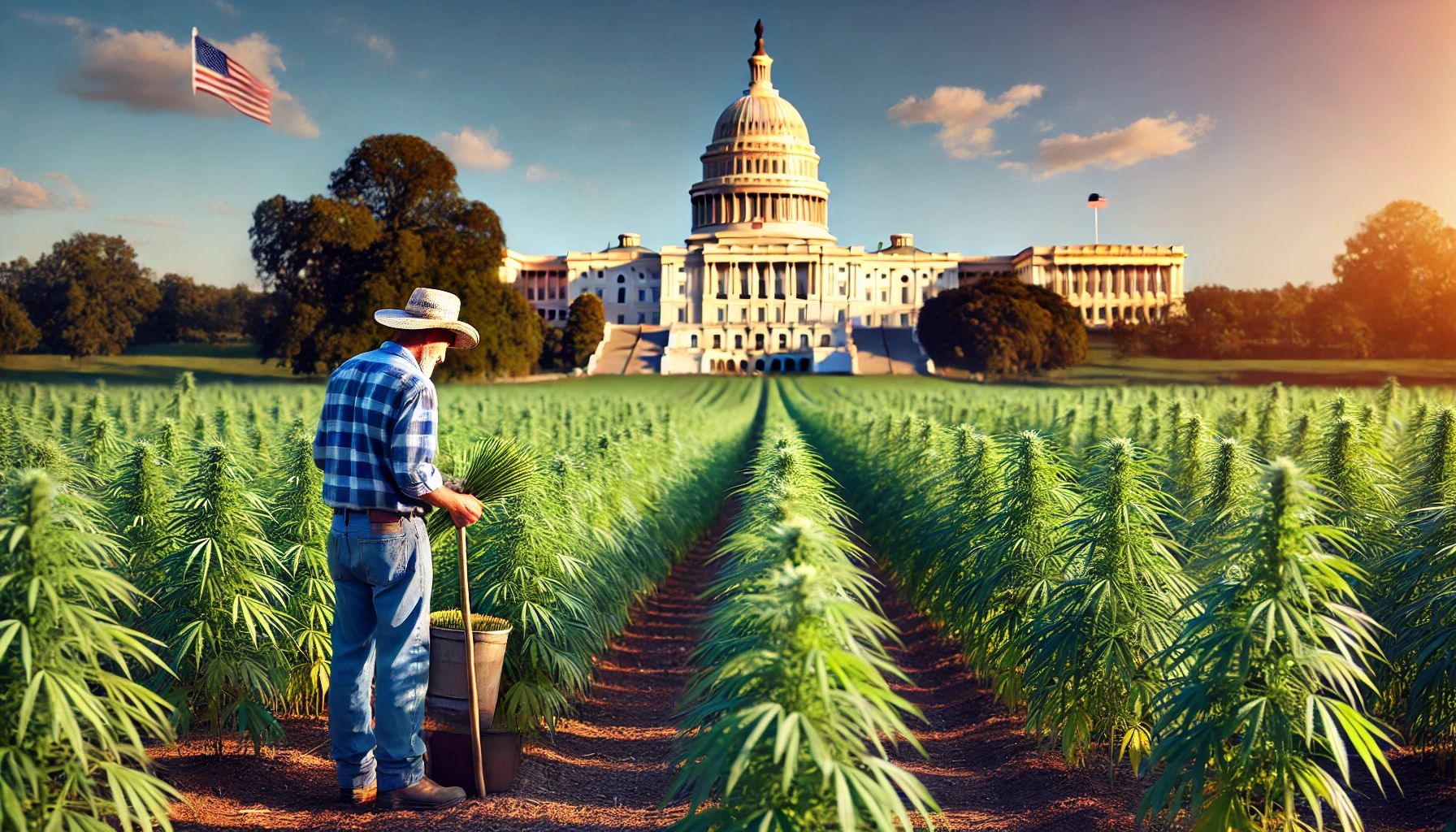
Federal law changes could bring significant impacts to hemp farmers across the United States, affecting their operations and profitability. The recent legislative proposals and amendments aim to modify regulations surrounding the cultivation, processing, and sale of hemp, a crop that has seen a resurgence in popularity due to its versatility and economic potential.
At the core of these changes is the proposed alteration to the THC threshold for hemp plants. Currently, hemp is legally defined as cannabis containing less than 0.3% THC, the psychoactive compound found in higher concentrations in marijuana. Lawmakers are considering raising this threshold to 1%, which could reduce the risk of crops testing over the limit and being destroyed. This change could offer farmers more leeway and reduce losses, providing a more stable environment for cultivation.
There is also a push to streamline the regulatory framework under which hemp is grown. The current system requires extensive testing and certification processes, which many farmers find burdensome and costly. Proposed changes aim to simplify these processes, potentially reducing compliance costs and administrative headaches. This could make hemp farming more accessible and attractive to new entrants and small-scale farmers.
Another critical aspect of the legislative proposals involves banking and financial services. Hemp farmers have historically faced challenges accessing banking services due to the association with cannabis. The proposed changes include provisions to ensure that hemp businesses can access banking services without fear of federal retribution. This access to financial services could provide farmers with the necessary capital to expand their operations and invest in better technology and infrastructure.
The potential law changes also address interstate commerce of hemp products. Currently, varying state regulations can complicate the transport and sale of hemp across state lines. Federal standardization of these regulations could open up new markets for hemp farmers, allowing them to sell their products more freely and compete on a national level.
The amendments propose increased funding for research into hemp and its uses. This funding could drive innovation in hemp farming techniques, product development, and new applications for hemp-derived materials. Enhanced research efforts could lead to higher crop yields, better pest and disease resistance, and more efficient processing methods, all of which would benefit farmers.
The environmental impact of hemp farming is another consideration. Hemp is known for its ability to improve soil health and sequester carbon, making it an environmentally friendly crop. Federal support for sustainable farming practices within the hemp industry could further enhance these benefits, promoting hemp as a key player in sustainable agriculture.
However, not all proposed changes have been met with universal approval. Some industry stakeholders worry about the implications of raising the THC threshold, fearing it could blur the line between hemp and marijuana and complicate enforcement. Others are concerned that reducing regulatory oversight could lead to inconsistent product quality and safety issues.
An important aspect of the current hemp regulations is the distinction between Delta-8 and Delta-9 THC. Delta-9 THC is the main psychoactive compound in cannabis, and its concentration in hemp is strictly regulated. Delta-8 THC, however, is a minor cannabinoid that occurs naturally in small amounts and can be synthesized from CBD. Due to a legal loophole, Delta-8 THC has been available under federal law, allowing it to be sold in many states even where Delta-9 THC remains illegal.
To illustrate, consider Delta-9 THC as whiskey and Delta-8 THC as vodka. If whiskey were outlawed but vodka remained legal, distilleries could still produce and sell vodka, providing an alternative revenue stream. Similarly, hemp farmers have capitalized on the legality of Delta-8 THC. The proposed changes to federal law include potential restrictions on Delta-8 THC. If the Delta-8 exception is removed, hemp farmers could face significant challenges. The removal of this loophole could drastically reduce the market for Delta-8 products, impacting farmers’ ability to sell their crops profitably. This change could force many to pivot their business models or face financial difficulties.
Several publicly traded companies are involved in the hemp business, and their performance could be affected by these federal law changes. Notable companies include:
- Charlotte’s Web Holdings, Inc. (CWBHF): A leading player in the hemp-derived CBD market, known for its high-quality products. Its stock price is currently around $0.90.
- Canopy Growth Corporation (CGC): Though primarily focused on cannabis, Canopy Growth has a significant hemp division. The stock is currently trading at approximately $0.61.
- CV Sciences, Inc. (CVSI): Another major player in the CBD market, offering a wide range of hemp-based products. Its stock price is currently around $0.30.
- Aphria Inc. (APHA): Known for its diverse cannabis operations, including a growing hemp segment. Aphria’s stock price is currently around $6.10.
- Tilray, Inc. (TLRY): A global leader in cannabis research and production with a significant interest in hemp. The stock is currently trading at approximately $1.70.
As these legislative proposals move through the federal government, hemp farmers and industry stakeholders are watching closely. The outcome of these changes could reshape the landscape of hemp farming in the United States, providing new opportunities and challenges. The future of hemp farming depends on the balance lawmakers strike between supporting the industry’s growth and maintaining necessary oversight to ensure safety and compliance.






